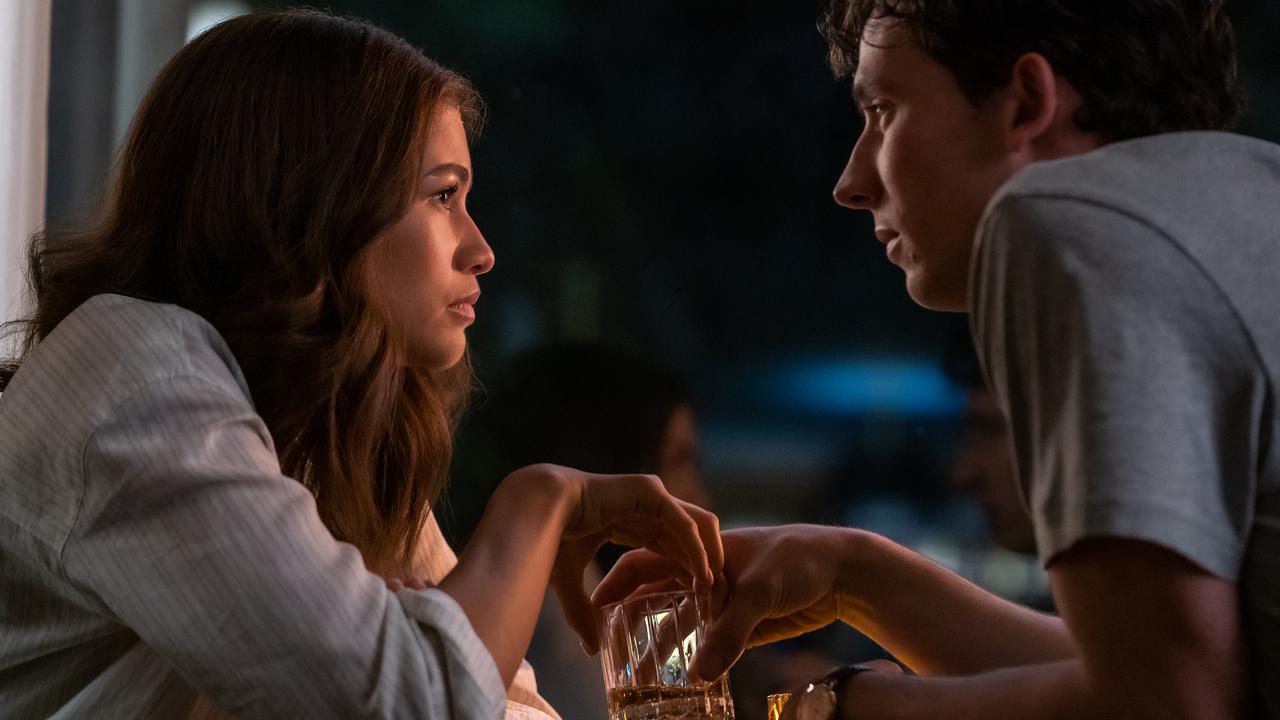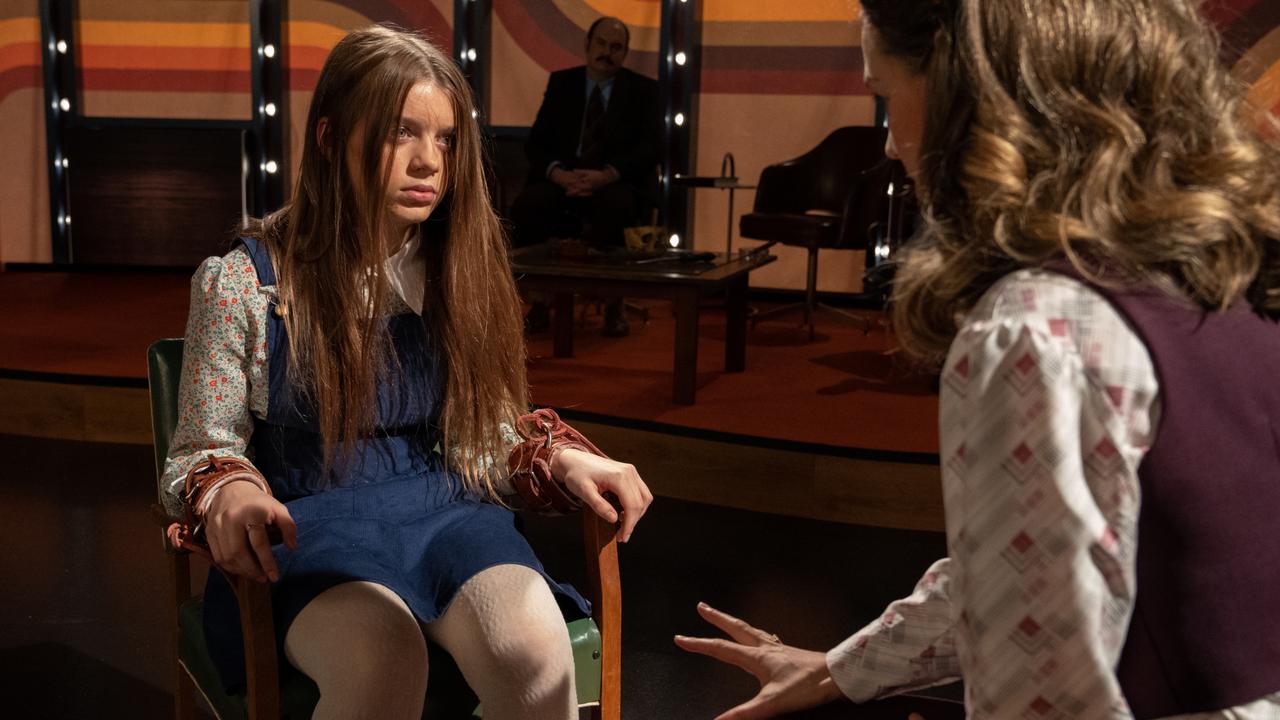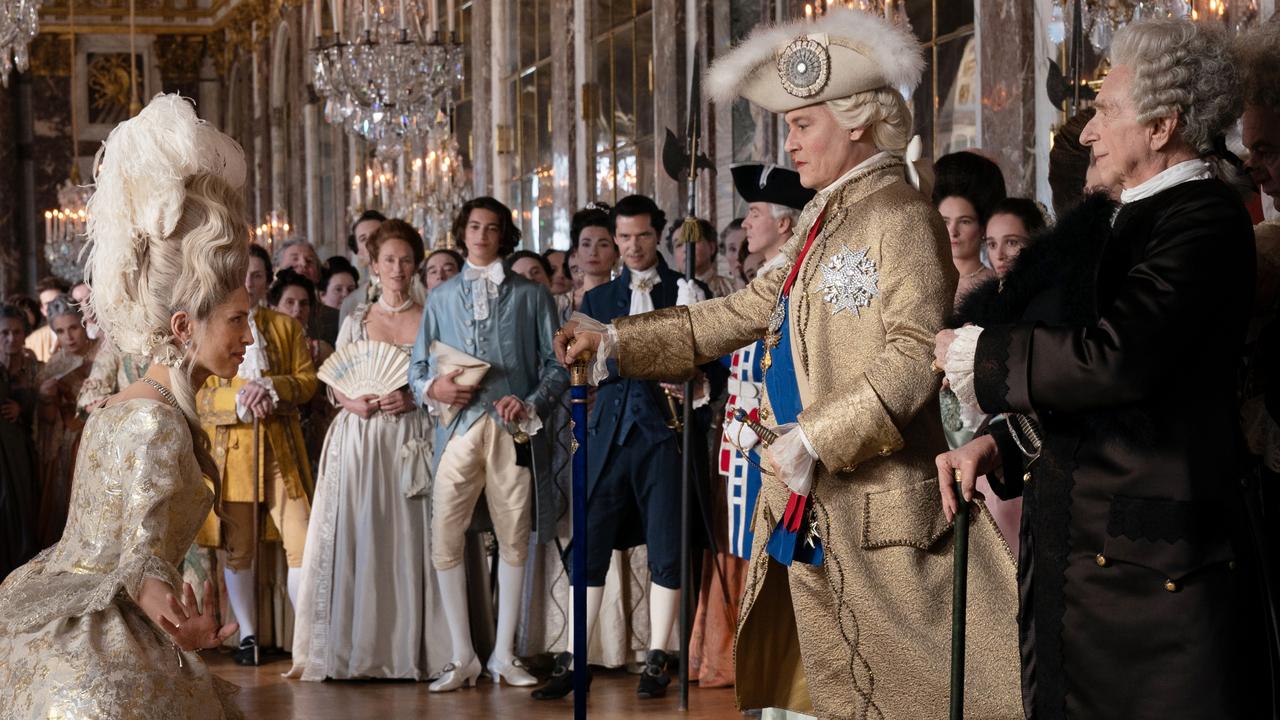Audience volleyed back and forth in gripping love triangle grudge match
Both a great sports movie and unconventionally riveting romantic drama, Challengers volleys the audience back and forth to reveal what is riding on a tennis match, writes Leigh Paatsch.
CHALLENGERS (M)
Director: Luca Gudagnino (Call Me By Your Name)
Starring: Zendaya, Josh O’Connor, Mike Faist
Rating: ****1/2
No faults, just aces
In what has been a relatively safe and serene year at cinemas so far, Challengers is a spectacularly successful standout.
This isn’t just a burst of fresh air. Challengers begins with gusts of howling wind, then builds with gale-force intensity until it lands viewers inside a hurricane.
Though it is indeed both a great sports movie and an unconventionally riveting romantic drama, it is the raw energy continually trapped, released and trapped again throughout Challengers that truly secures a screen grand slam.
The story begins in that twilight zone of professional tennis that separates the big money splashed around by the major tournaments from the loose change to be scrounged on the satellite circuit.
It is here, watching from the stands, that we find Tashi (Zendaya), a former junior women’s champ whose promising career was cruelly curtailed by injury.
Tashi’s involvement in the sport that has been a life’s obsession is now confined to managing the tennis career of her highly-ranked husband Art (Mike Faist).
His form has been wavering in the run-up to the US Open, so Tashi has entered Art in a low-profile suburban event so he can rack up an easy kill.
Victory in the final of the not-so-prestigious Mike’s Tire Town Championship should be a mere formality, were it not for the imposing off-court record of a surprise opponent.
Patrick (Josh O’Connor) might just have the all-important psychological edge in what shapes as a gripping grudge match.

Not only did he used to be Art’s best friend when they were hungry up-and-comers, Patrick also just happened to be Tashi’s boyfriend of choice back then.
Using the Art versus Patrick stoush as a compelling framing device, director Luca Gudagnino volleys the audience back and forth through time to ultimately reveal exactly what is riding on the result of this match.
Just as the longevity of Tashi’s marriage to Art could be considerably shortened, Patrick’s expiry date as a viable player might be bumped back a year or two.
The stakes are raised further by the hyperkinetic shooting style which Gudagnino and his creative team apply to the irresistible game day sequences.
To put it bluntly, with cameras perpetually whooshing within and around the play from every conceivable angle, the uniquely seductive force and pure human instinct of tennis has never been captured quite like this.
As for the story told here, be assured Challengers is not just tracing the same old lovers’ triangles drawn so many times before.
Via a trio of exciting, exacting performances, each participant’s virtues and flaws are brought to life vividly and convincingly.
No one character will win you over, but in many ways you’ll be left hoping the game(s) they are playing will never end.
Challengers is in cinemas now
LATE NIGHT WITH THE DEVIL (MA15+)
Rating: ****
General release

It has a been a while since we’ve heard from Australian filmmaking brothers Cameron and Colin Cairnes (100 Bloody Acres), but the wait has proved worth it. The sibling team have conjured a career-best offering that will surely stand as one of the more original and creepy horror films of recent times. The concept is a cracker: it is Halloween 1977, and we are watching a live broadcast of the New York-based TV talk show Night Owls. The program’s self-righteously smarmy host Jack Delroy (a superb David Dastmalchian) is making a last-ditch bid to reverse a relentless ratings slide by stacking his guest list with freaks, geeks and freeloaders of a paranormal flavour. The kooky combo includes a dodgy mystic, a pioneering parapsychologist, a demonically haunted teenage girl and a pompous sceptic. A line-up like this is guaranteed to self-combust at some point. However, when the broadcast starts going off the rails, it seems as if the on-camera talent and the studio audience are entering an alternative realm from which there may be no return. While the authentic visual design of the movie (it looks uncannily like a TV transmission of the era) sells the premise to full value, it is the anxious energy filling the Night Owls studio like a noxious gas that truly leaves a lasting, unsettling chill here.
JEANNE DU BARRY (M)
More Coverage
Rating: **1/2
Selected cinemas

This rather conventional, though pleasingly lavish costume drama set in the years before the French Revolution kicked up quite a fuss when premiering at Cannes last year. The production drew serious heat for its stunt casting of former Hollywood star Johnny Depp as the infamous French King Louis XV. Speaking the local lingo, no less. While a puffed-up and preening Depp was never a chance of returning to his glory days here, he does a surprisingly apt job in a key role. The title character (played by the movie’s writer-director, Maiwenn) is the principal focus of an uneven screenplay, which sometimes struggles to make sense of Jeanne’s rise through the ranks of the Palace Versailles as Louis’ kingdom nears the brink of ruin.
Originally published as Audience volleyed back and forth in gripping love triangle grudge match





